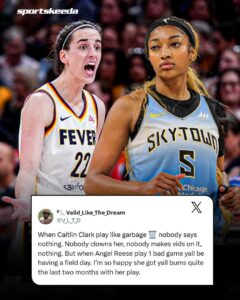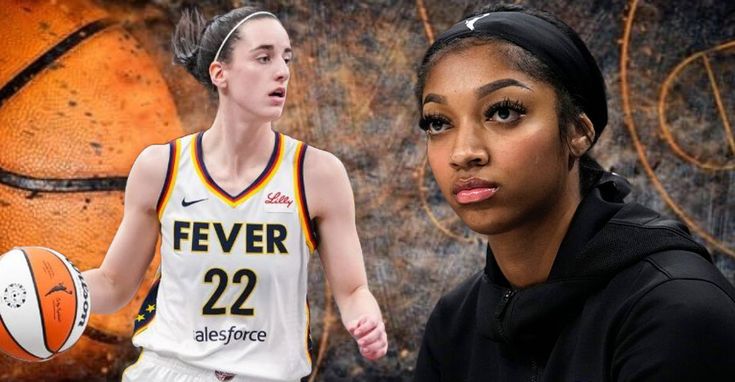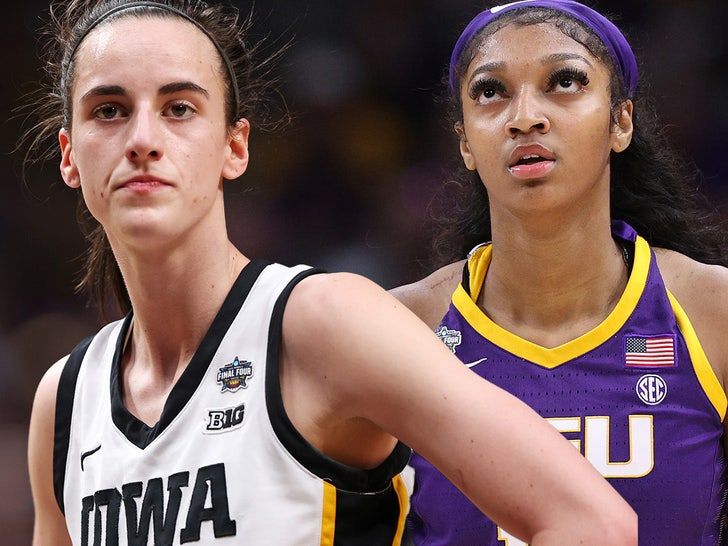The Double Standard: Why Caitlin Clark and Angel Reese Aren’t Judged the Same Way
The emergence of Caitlin Clark and Angel Reese as two of the most dominant forces in women’s basketball has created a fascinating and deeply troubling case study in how America views its athletic heroes, particularly when race becomes an underlying factor in public perception. While both players have demonstrated exceptional skill, leadership, and competitive fire on the court, the way they are portrayed in media coverage and discussed in public forums reveals a stark double standard that speaks to broader issues of racial bias and coded language in sports commentary.

When Caitlin Clark displays intense emotion during games, celebrates aggressively after big plays, or engages in trash talk with opponents, she is often described as “fiery,” “passionate,” or showing “championship mentality” by commentators and fans who view her intensity as a positive attribute of competitive excellence. The narrative surrounding Clark consistently frames her as a player who elevates the game through her emotional investment and willingness to be demonstrative, with media outlets praising her for bringing energy and excitement to women’s basketball in ways that make the sport more compelling for audiences.
Angel Reese, displaying virtually identical behaviors on the court, faces a dramatically different reception from both media and fans, with her celebrations being labeled as “excessive,” her competitiveness described as “aggressive,” and her emotional displays characterized as “attitude problems” that detract from the game. The media has benefited from her pain and villainization to create a narrative, as Reese herself pointed out when addressing the disparate treatment she receives compared to her white counterparts in the sport.

The language used to describe these two players reveals the persistence of racial stereotypes that have long plagued sports commentary, where Black athletes are more likely to be portrayed as naturally gifted but lacking in intelligence or sportsmanship, while white athletes are credited with superior basketball IQ, leadership skills, and positive competitive instincts. This pattern extends beyond individual game coverage to encompass broader discussions about their impact on the sport, with Clark frequently positioned as someone who is “growing the game” while Reese is portrayed as someone who needs to “tone down” her approach to fit more acceptable standards of behavior.
The double standard becomes even more pronounced when examining how their achievements are framed in historical context, with Clark’s record-breaking performances and accolades being presented as evidence of her transformative impact on women’s basketball, while Reese’s equally impressive statistics and championship success are often overshadowed by discussions of her personality and approach to the game. A new study from Rice takes a look at one of the most polarizing sports controversies in recent memory, examining how social media amplifies these disparities and creates echo chambers that reinforce existing biases about how female athletes should behave.
The fan response to these two players further illustrates the problematic nature of this double standard, with Clark’s supporters often engaging in rhetoric that explicitly or implicitly diminishes Reese’s accomplishments while elevating Clark’s contributions to the sport in ways that suggest only one type of player deserves recognition and respect. Reese went on to list death threats and people coming right to her home as an alleged example of measures Clark’s fans have taken in response to their rivalry, highlighting how the disparate treatment extends beyond mere commentary into genuinely threatening behavior.

This situation reflects broader patterns in American sports where Black excellence is often viewed with suspicion or requires additional justification, while white excellence is automatically assumed to be the product of superior work ethic, intelligence, or character, creating an environment where athletes of color must constantly prove their worthiness in ways that their white counterparts never face. The Caitlin Clark and Angel Reese comparison serves as a microcosm of these larger issues, demonstrating how unconscious bias and coded language continue to shape public perception of athletic achievement in ways that undermine the progress women’s sports has made in recent years.
Moving forward, the sports media and fan communities must confront these double standards directly, recognizing that both Clark and Reese represent the future of women’s basketball and deserve equal respect for their contributions to the sport, regardless of how their personalities or playing styles align with traditional expectations of female athletes. The continued success of women’s basketball depends on celebrating all forms of excellence and competitiveness, not just those that conform to narrow and often racially influenced standards of acceptability that have historically limited the growth and recognition of women’s sports.